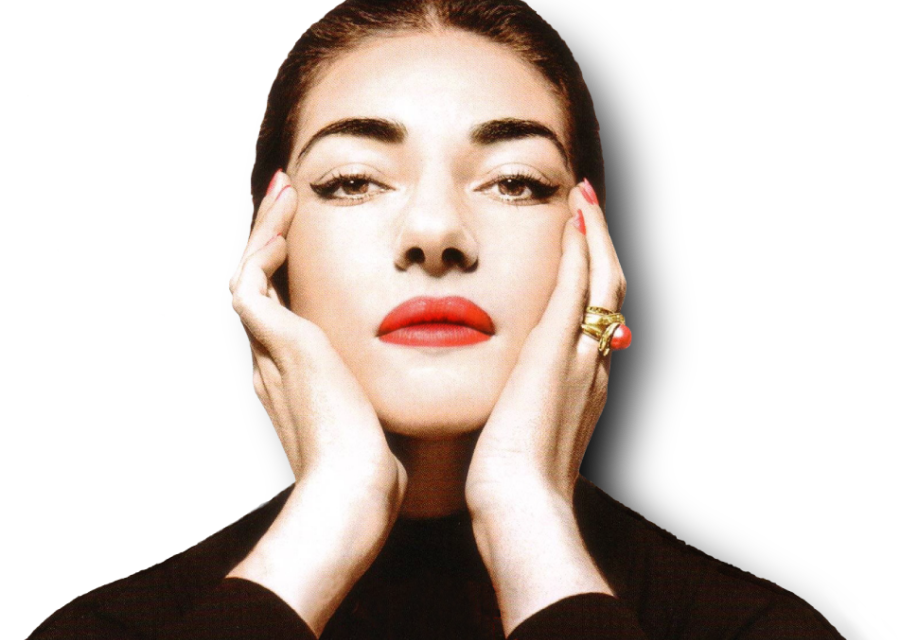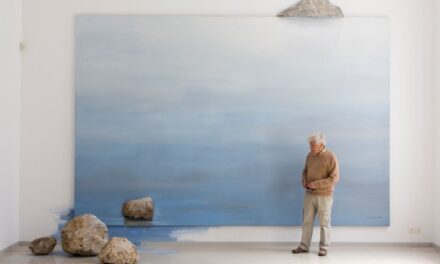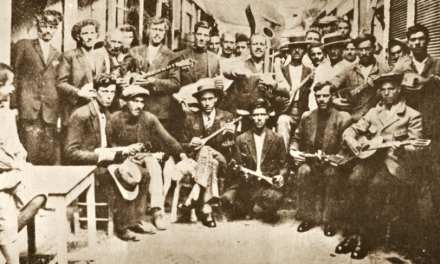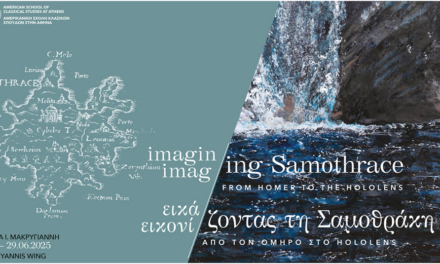Maria Callas was arguably the quintessential soprano, lauded for her exceptional vocal range, dramatic versatility, and ability to convey deep emotions through her performances. She is widely regarded as one of the greatest sopranos of the 20th century, credited with reviving interest in bel canto opera and popularizing it to a wider audience – all of which rightfully earned her the characterization “La Divina (The Divine One)”.
The centenary of her birth, celebrated in 2023, has served as an opportunity for older generations to revisit her performances as well as for younger ones to discover her artistic genius through a series of various retrospectives, tribute performances of her most iconic roles, temporary exhibitions and even a new museum in Athens. The occasion has also inspired the release of restored video recordings, documentaries, as well as an upcoming book (Diva, by bestselling author Daisy Goodwin) and a film (Maria, by awarded director Pablo Larraín).
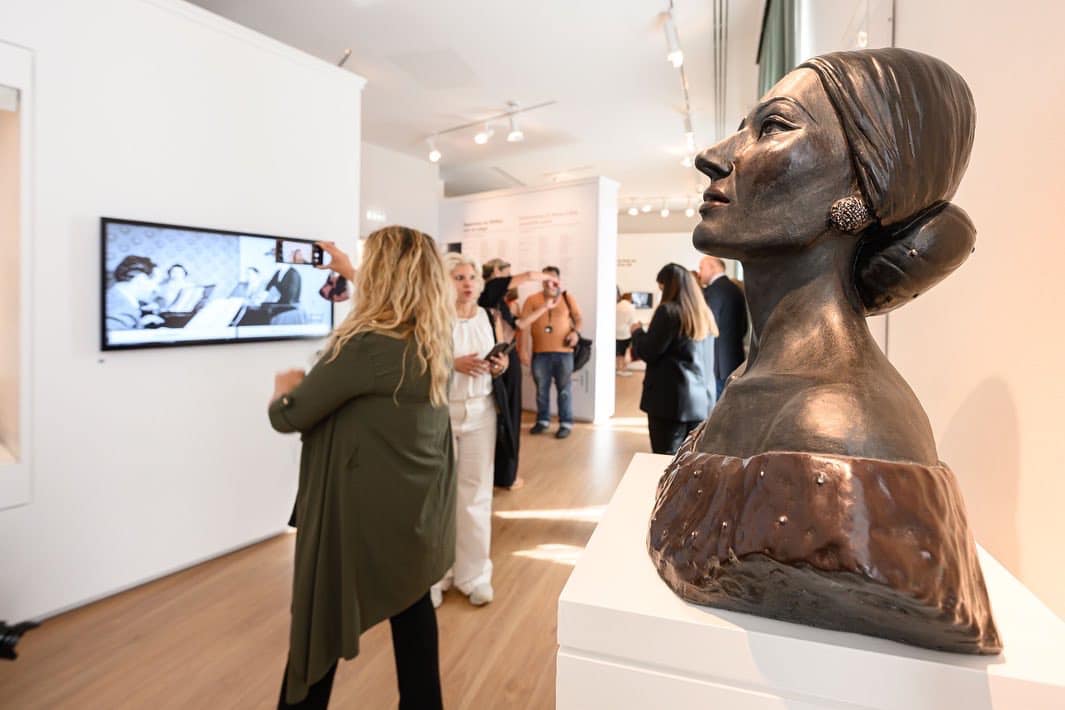
Maria Callas Museum in AthensEarly Life and Education
Maria Callas was born on December 2, 1923, in New York City, to Greek parents who had recently migrated there. Her father, George Kalogeropoulos, would later shorten his long surname to “Kalos” and subsequently to “Callas”. They had a daughter and son before the birth of Maria.
From a young age, Callas exhibited a gift for music and singing; her mother, Evangelia (Litsa), –whose own dreams for a career as an artist had been crushed– pressured her into pursuing this talent, to the resentment of her father. The couple, who faced various problems in their relationship, eventually split, and, in 1937, Evangelia left for Athens with her two daughters.
In Athens, Callas’ mother enrolled her at the Greek National Conservatoire, after she failed in her audition for the more prestigious Athens Conservatoire. Although initially training as a contralto, her teacher realized that her voice was actually fit for a dramatic soprano, and adjusted her training accordingly.
Callas auditioned for the Athens Conservatoire a second time, and was accepted. After she had concluded her studies at the Greek National Conservatoire, she studied under the acclaimed Spanish coloratura soprano Elvira de Hidalgo, who worked as a vocal teacher at the Athens Conservatory and as an artistic consultant at the Greek National Opera (founded in 1939, as a branch of Greece’s National Theater). Under de Hidalgo’s guidance, Callas developed her vocal range, control, and the unique timbre that would later set her apart as an operatic phenomenon.
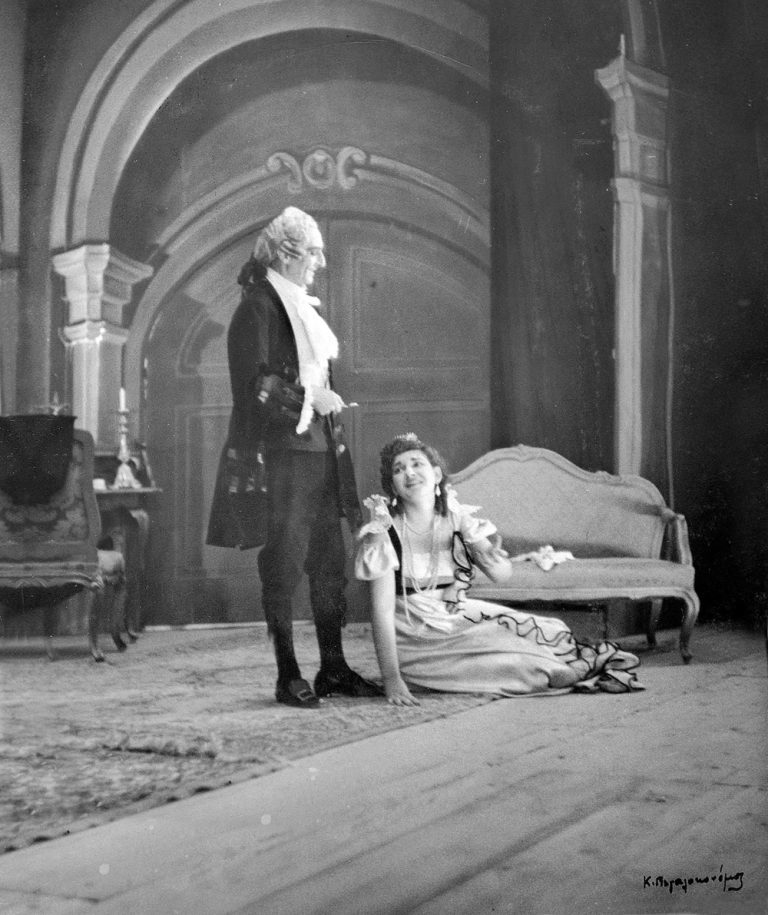
Rise to fame
Callas signed her first contract with the Greek National Opera in 1940, under her birth name (Maria Kalogeropoulou); she made her professional opera debut in February 1941 playing the small part of Beatrice in Franz von Suppé’s operetta Boccaccio. In 1942, she starred as Tosca in Puccini’s famous opera of the same name, and went on to perform important parts in GNO’s subsequent productions.
In 1947, she made her Italian debut at the Arena di Verona, in the title role of Ponchielli’s La Gioconda. In 1949, at the Teatro Comunale Giuseppe Verdi in Trieste, she sang the role of Elvira in Bellini’s I puritani, a role that gave her the chance to really demonstrate her abilities. This performance marked the beginning of her international career as Maria Callas, which took her to some of the most prestigious opera houses in the world.
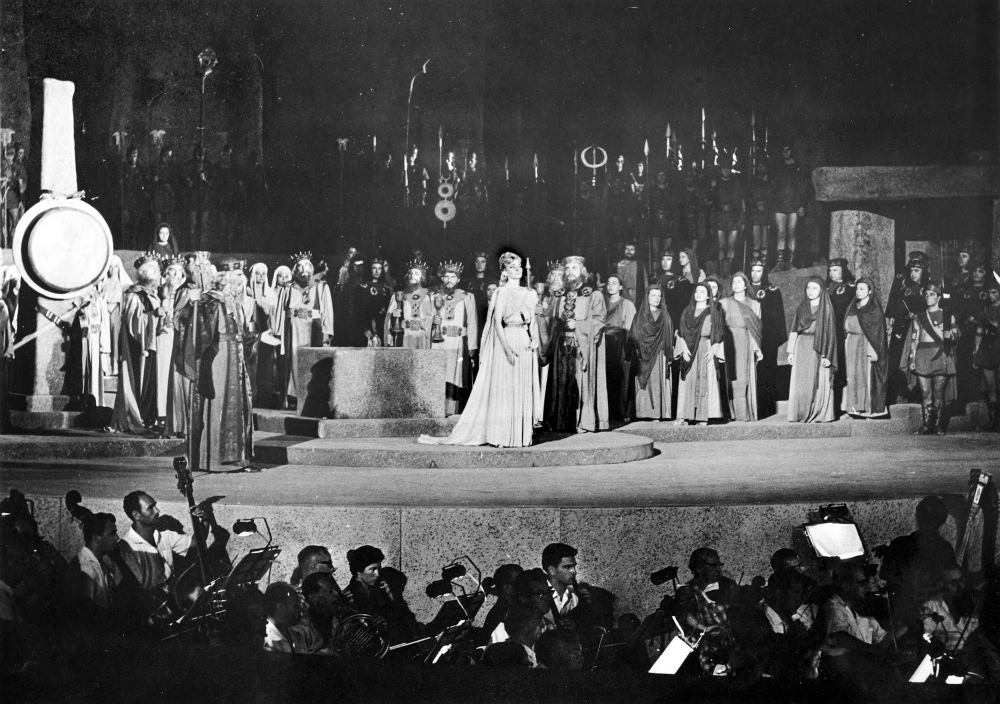
Already in 1950, she appeared at Milan’s iconic Teatro alla Scala in Verdi’s I Vespri Siciliani; at the same theater, in 1952, she performed the title role in Bellini’s Norma, a role she reprised that same year at Covent Garden, to great critical acclaim. This performance catapulted her to international stardom. In 1954, she sang Norma for her American debut with the Chicago Lyric Opera and in 1956 she made debut at the Metropolitan Opera.
Among her most historic performances we also find the role of Violetta in Verdi’s La Traviata at La Scala (1955); Rosina in Rossini’s Barbiere di Siviglia at La Scala (1956); the eponymous role in Donizetti’s Lucia di Lammermoor in Rome (1957); Puccini’s Tosca at Covent Garden (1958); Imogene in Bellini’s Il Pirata in New York (1959); and the leading part in Cherubini’s Medea at La Scala (1961). She also made excellent recordings that remain among the highest selling of their kind – some of the most famous examples include Norma ( 1955), Turandot (1957) and Carmen (1964). In 1969, she collaborated with famous Italian filmmaker Pier Paolo Pasolini, starring in his cinematic version of Euripides’ Medea, in her sole film role, which was also her only non-singing role.
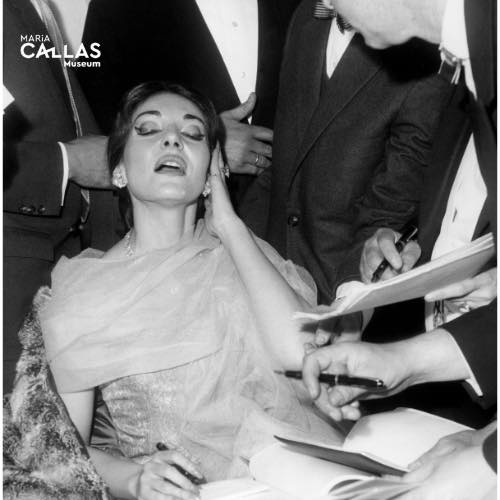
Personal life and death
In 1947, Maria Callas had met Giovanni Battista Meneghini, a much older Italian industrialist, who supported her through the early years of her career; they got married in 1949. Her marriage practically ended in 1959 (although it wasn’t dissolved until 1966), due to her romance with famous Greek shipping magnate Aristotle Onassis. Their affair was a source of intense media attention and scandal, and ended when Onassis decided to marry former First Lady Jackie Kennedy in 1968, adding heartbreak to the psychological burden of her declining career, as her voice slowly started to lose its power.
Callas taught master classes at the Juilliard school (1971–72). She sang in public for the last time in 1973. She would spend her final years living mostly in isolation in Paris; she died of a heart attack at age 53 on September 16, 1977.
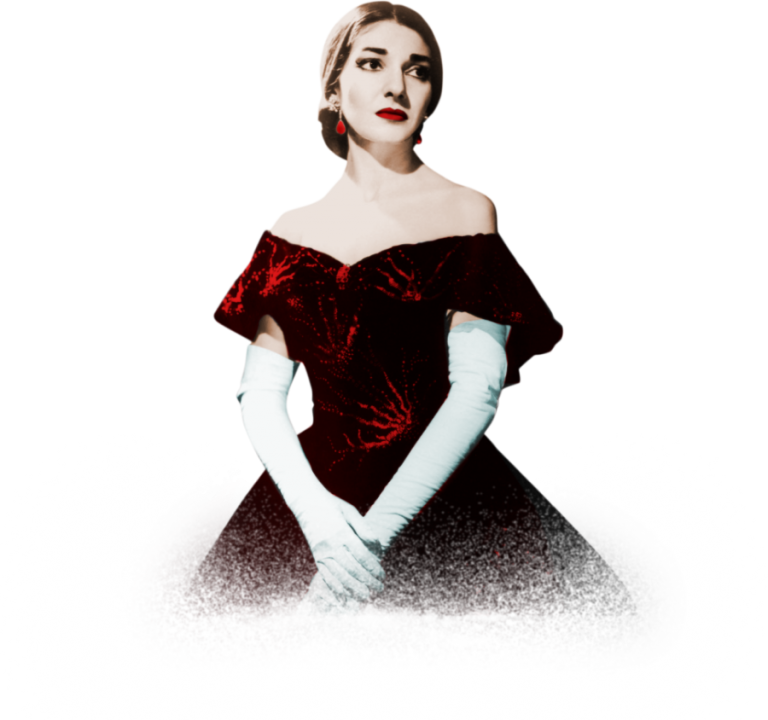
Legacy and Influence
Maria Callas stands out as a truly unique and transformative figure. Her legacy continues to inspire and influence opera singers and opera lovers around the world. Her recorded performances and live recordings continue to inspire and captivate new generations of opera enthusiasts. Her impact on the art form extended beyond her time, shaping the expectations of opera audiences and influencing subsequent generations of opera singers.
Callas possessed a remarkable vocal technique, with a wide range, exceptional breath control, and the ability to produce both powerful and delicate sounds. She was also a master of coloratura singing, which is characterized by rapid and intricate vocal passages. Beyond her vocal abilities, Callas was also known for her powerful stage presence and dramatic versatility, as she was able to convincingly portray a wide range of characters, from tragic heroines to comedic ingenues. Her performances were known for their emotional intensity and psychological depth.
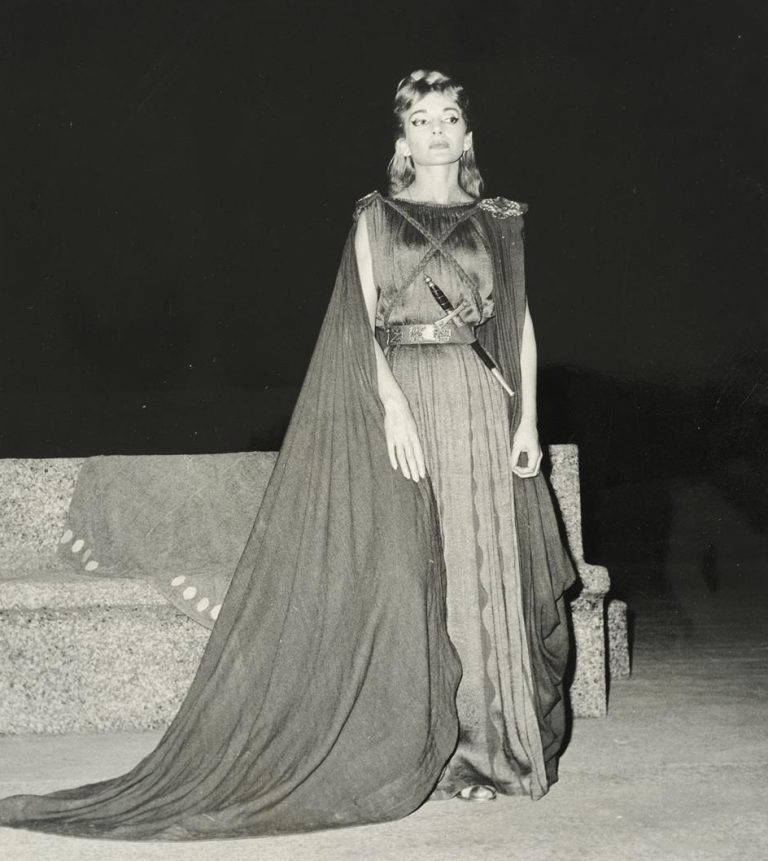
As British novelist and screenwriter Daisy Goodwin -author of Diva, an upcoming book about the life of the great soprano- recently told The Guardian: “Even someone who has never heard of Callas, if they look her up online singing the second act of Tosca, can see she was extraordinary, and not just for her singing but the way she plays the role”, adding that “the reason she’s still such an icon is that, while she is a genius of course, she transformed opera”.
In addition to her technical mastery and dramatic prowess, Callas was also a highly intelligent and insightful artist, deeply committed to her craft and constantly seeking to improve her performances. Her dedication and passion for opera were evident in every performance she gave, while even her distinctive style, elegance and fashion sense, both on and off-stage, made her stand out and influenced the trends of her time.
Maria Callas will forever be remembered as the epitome of operatic excellence and as a symbol of artistic courage and emotional depth in the world of opera.
Read also via Greek News Agenda: The Greek National Opera pays tribute to Maria Callas; A tribute to Maria Callas by the General Secretariat for Greeks Abroad and Public Diplomacy on ERTFLIX

